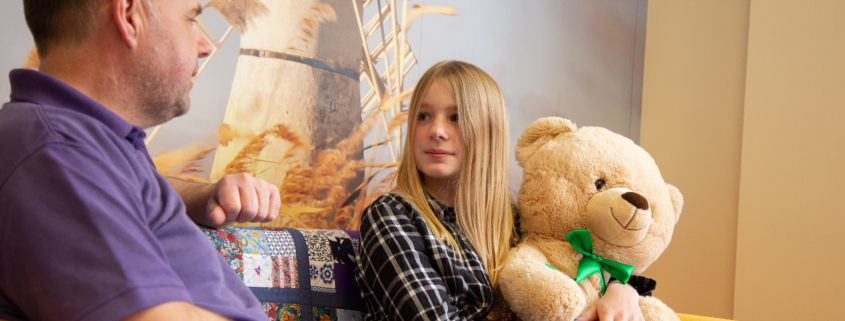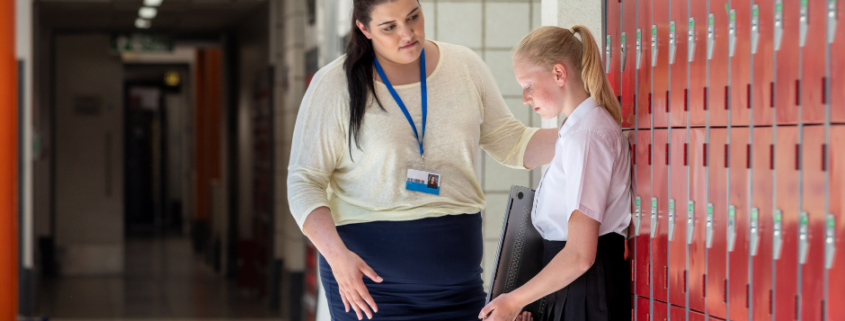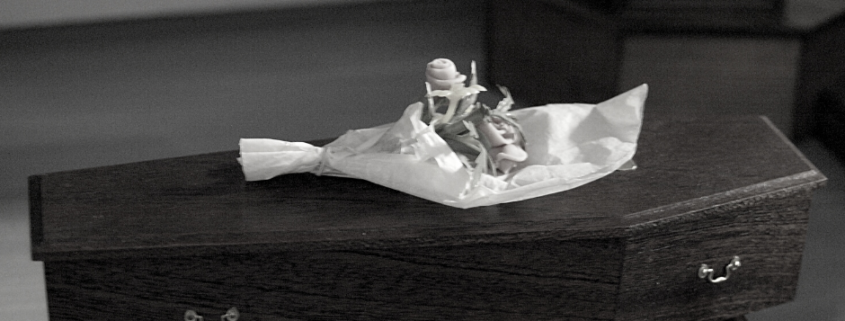Local author creates children’s book to raise funds for Nelson’s Journey
Over the past few months we’ve been working with local author Jamie Payne, the creator of Biggle Dink, who has created a book called Big Feelings.
Jamie Payne hopes his creation can help bereaved children when they are struggling to cope with overwhelming feelings such as anger.
Jamie approached the us in November 2023 and pitched the idea of creating a bespoke book, using his character “Biggle-Dink”, that would help support bereaved children and raise money for the charity too.
Jamie met with Funding and Marketing Officer, Becky Bushell, along with members of the service team who deliver bereavement support directly to children. After discussing various approaches to the book, Jamie decided to run with the theme of managing “Big Feelings,” and made that the title of the book.
The book aims to help children explore various feelings but focuses on how to manage anger safely. It’s a resource to help bereaved children manage how they feel, but has been written so any child can read it alone or with an adult to help them learn how to manage big feelings too.
Jamie said: “Readers of my books will know that Biggle-Dink sometimes struggles with tricky feelings and emotions, so creating a custom book in this area seemed a logical fit. In the book, Biggle-Dink experiences a few different emotions but it focuses on how they deal with anger.
“This is because when children experience different emotions like anxiety, fear or sadness, what they will actually display is anger. Younger children are often too young to understand what they are feeling or how to deal with it, so anger is used to mask other emotions – it is their way of dealing with and expressing complex feelings. Nelson’s Journey has some really useful and safe tips for children to manage these feelings and Biggle-Dink takes inspiration from them in the book.”
Jamie’s initial goal was to raise £100 from the project, however, he’s managed to secure sponsorship from a range of local businesses so 750 copies will now be printed to sell. It’s thanks to Cromer Pier, Sanders Coaches Ltd, Yellow Brick Mortgages, Orchard Toys and Dann’s Farm that Jamie now hopes to raise over £3000. Copies of the book will also be stocked at Nelson’s Journey to gift to children receiving support to help them manage their feelings of anger.
Becky Bushell, Funding & Marketing Officer from Nelson’s Journey said: “It’s been an absolute pleasure to collaborate with Jamie on this unique project. It’s been wonderful watching how Biggle Dink explores these different emotions and learns how to grapple with feelings of anger. The book reflects the range of emotions that children go through and offers a helpful guide for them to understand their feelings better and help them deal with their anger in a healthy manner. It’s a great book that younger children can read alone or with an adult to help discover big feelings, and it will be a useful resource that we can share with the bereaved children we are supporting too.
“We are delighted it has received such a positive response from local businesses who have kindly sponsored the print costs, allowing Jamie to increase his fundraising goal too.”
Jamie concluded “Like many other people in Norfolk, I am fortunate enough to have never needed the type of support that Nelson’s Journey provides to bereaved children. I can’t imagine how a child must feel when someone significant to them dies, but I take warmth from knowing that by producing and selling this book we can raise vital funds to help support these very children.
“I am so honoured that Nelson’s Journey allowed me to work on this book on their behalf – it is a project I will never forget.”
The book will go on sale from w/c 27th May and will retail at £6.99 with 100% of the profits raised by Jamie to be donated to Nelson’s Journey. It will be stocked at Cromer Pier and in Roys of Wroxham and their stores in Bowthorpe, Dereham, North Walsham and Magdalen Street too. It will also be available to purchase online at www.biggledink.co.uk.
As part of the launch, Jamie will be signing books at Roys of Wroxham on Thursday 30th May from 11 am and at the Cromer Pier 60’s event on Saturday 8th June too

Jamie Payne pictured with Becky Bushell from Nelson’s Journey








